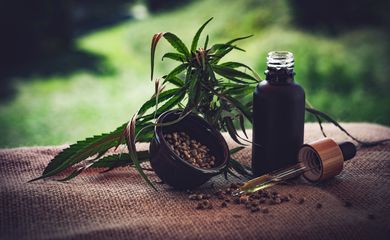Court sets 40g of marijuana as limit to differentiate user from dealer

Brazil’s Federal Supreme Court decided on Wednesday (Jun.26) to set the amount of marijuana that characterizes possession for personal use at 40 grams or six female Cannabis sativa plants, thereby distinguishing between users and traffickers.

This definition builds on the Court's ruling from Tuesday, (Jun. 25), which decriminalized the possession of marijuana for personal use.
The calculation was based on the votes of the justices, who proposed amounts ranging from 25 to 60 grams in their votes in favor of decriminalization. An average of these suggestions resulted in the final amount being set at 40 grams.
Illegal act
Decriminalization does not equate to the legalization of drug use. Possession of marijuana remains illegal, meaning it is still prohibited to smoke the drug in public places. However, the consequences of possession are now administrative rather than criminal.
The decision does not prevent police interventions, and the drug can still be seized by officers. In such cases, the police must notify the user to appear in court.
During the session, Supreme Court President Justice Luís Roberto Barroso rebutted accusations of overstepping judicial boundaries by ruling on decriminalization. On Tuesday (25), Senate President Rodrigo Pacheco asserted that this decision should be the prerogative of Congress.
Barroso stated that the Supreme Court should decide the case because it handles and judges prisoners' habeas corpus petitions. "This is fundamentally a matter for the Judiciary. We need a criterion to determine whether a person should be imprisoned, as this decision has a dramatic impact on a person's life. There is no more important role for the judiciary than deciding whether someone should be incarcerated," he emphasized.
Evidence
Under the ruling, individuals found carrying marijuana can be taken to a police station when approached by the police. The officer will be responsible for weighing the drug, determining whether the situation qualifies as possession for personal use, and referring the case to the courts.
The Supreme Court's decision also permits arrests for drug trafficking when the amount of marijuana is less than 40 grams. In such instances, law enforcement officials must consider evidence such as the intent to sell, the seizure of weighing scales, and records of sales and communications between dealers.




